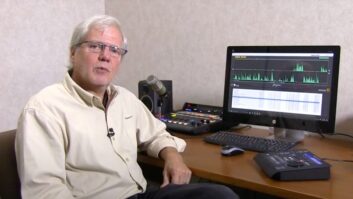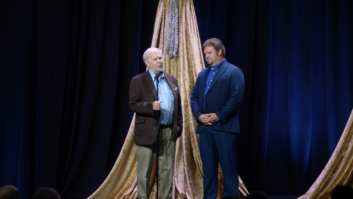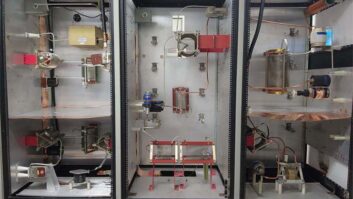We don’t know if any out-of-court settlements were ever paid but Mission Abstract Data has ended its long-running patent infringement suit against some radio broadcasters and the broadcast automation they use.
To refresh the memory, MAD and an associated company, DigiMedia Holding Group LLC, sued a number of large broadcast groups in federal court in Delaware in 2011, but the long dormant case never went to trial. Now all parties have agreed to dismiss the main suit and the countersuits filed by broadcasters, according to court documents filed in December 2017.
The official court document dismissing the suit is very brief and offered no out-of-court settlement specifics, if, indeed, any took place, stating only that all parties “hereby stipulate and agree to this dismissal of the above-captioned action with prejudice,” which means the suit cannot be brought forward again. Each party also agreed to “bear its own fees and costs.”
Several patents held by MAD were at the center of the infringement suit targeting CBS Radio, Greater Media, Beasley Broadcasting, Cumulus Media, Entercom Communications and Cox Radio. Beasley has since acquired Greater Media and Entercom merged with CBS Radio. The plaintiffs claimed their patents, involving hard-disk radio automation systems, were being infringed by the broadcasters. Townsquare Media, originally included in the infringement suit, was released from it in late 2011, a move that sparked industry debate about a possible settlement agreement.
The U.S. Patent and Trademark Office eventually reexamined the patents involved in the suit, 5,629,867 and 5,809,246, at the request of equipment maker and automation software developer Broadcast Electronics. As the result of two reexaminations “DigiMedia was forced to narrow their amendments and arguments,’ according to courtroom documents associated with the case.
“In sum, the reexaminations limited the number and scope of the claims in dispute and eliminated most — if not all — relief that DigiMedia could obtain in the unlikely event that the claims are valid and infringed,” according to a letter to the judge from defense attorneys for the radio broadcasters.
Bill Ragland, a patent litigator with Womble Bond Dickinson LLP, told Radio World that it’s impossible to know if broadcasters paid to settle the lawsuit. “It could be DigiMedia concluded that following the reexaminations the patent infringement case was not worth pursuing,” Ragland said.
Judge Leonard Stark denied several motions by MAD and DigiMedia to lift the existing stay, according to court documents. After that the court docket went silent for about four years with no activity during the length of the stay. Last fall the judge ordered a status report from all parties involved in the case and that appears to have led to the court document from the MAD folks requesting dismissal.
Through the years MAD and DigiMedia embarked on several high-pressure campaigns to have radio stations sign patent license agreements. Stations typically received letters in the mail accompanied by follow up phone calls with MAD representatives asking them to sign voluntary license agreements. MAD representatives did not respond to requests from Radio World for comment.
Patent holding firms like MAD have set their sights on the broadcast industry before. Wyncomm LLC, and its subsidiary Delaware Radio Technologies LLC, targeted the terrestrial HD Radio data and voice transmissions of radio broadcasters in federal court in 2013 claiming patent infringement. The suit was eventually dismissed. And who could forget Quad Dimension Inc. (QDI) and its claim in the late 1990s that it owned the patent on which the federally mandated Emergency Alert System was based. QDI sent licensing agreements to thousands of broadcasters asking them to pay royalties in order to use the technology.







